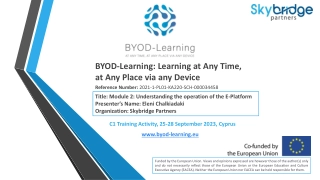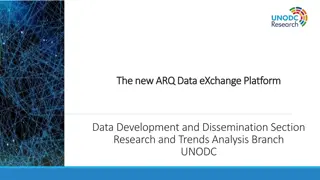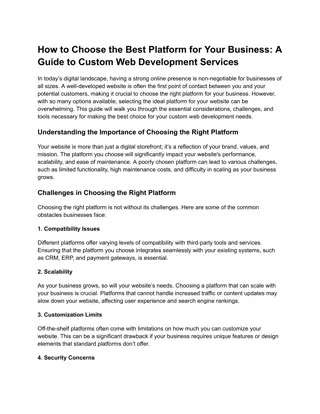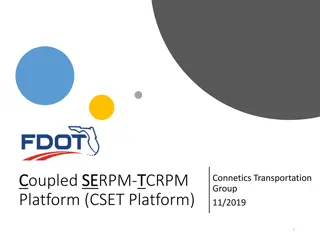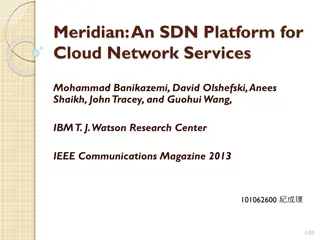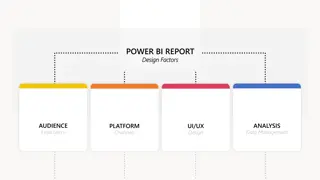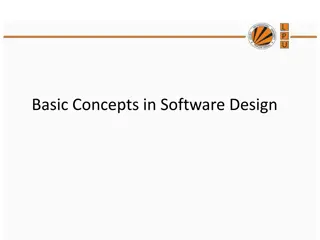The Platform Design Problem
Dive into the complexities of platform design in the digital age, exploring computational tractability and equilibrium challenges. Understand the Stackelberg Game dynamics, NP-hard problems in profit optimization, and more tractable cases like "The Flower" problem, offering insights into optimizing platform usage and designer strategies.
Download Presentation

Please find below an Image/Link to download the presentation.
The content on the website is provided AS IS for your information and personal use only. It may not be sold, licensed, or shared on other websites without obtaining consent from the author.If you encounter any issues during the download, it is possible that the publisher has removed the file from their server.
You are allowed to download the files provided on this website for personal or commercial use, subject to the condition that they are used lawfully. All files are the property of their respective owners.
The content on the website is provided AS IS for your information and personal use only. It may not be sold, licensed, or shared on other websites without obtaining consent from the author.
E N D
Presentation Transcript
The Platform Design Problem Christos Papadimitriou, Kiran Vodrahalli, Mihalis Yannakakis Columbia University NetEcon 2021
Platform Design Key Idea: Google builds various apps (Maps, Search, Social Network, etc.) and profits based on usage of these apps. The usage of apps modifies the transitions of the Markov Chain of the user s life Assume the Designer has linear rewards over the steady state distribution of the resulting Markov chain (agent policy + Life MDP)
The Stackelberg Game Designer moves first: Adds platforms which, if adopted, modify transitions to an existing Markov Chain Agent moves second: Receives MDP from Designer, plays optimal behavior Example of bi-level MDP optimization What is the computational complexity of solving for equilibrium?
Computational Tractability I: General Case It is strongly NP-hard to decide whether the Designer can obtain positive profit and therefore hard to approximate. Reduction from Set Cover Designer builds platforms which each solve subset of Agent s problems. Most cost-effective covering set is NP hard. In economic terms, the reduction exploits the complexity of complementary goods. Ex: Brick-and-mortar retail ads help the Agent discover the store, Maps helps the Agent get to the store.
A More Tractable Case: The Flower Problem can be solved by an FPTAS Why tractable? Substitutes rather than complements Allocate time spent in each platform Simpler low-level behavior (greedy agent) Admits a DP upon discretization (knapsack DP)
The Agents Greedy Algorithm Sort states by potential function and add until utility = potential:
The Designers Dynamic Program Designer s profit function for set of platforms S: Assume z is discretized and costs are polynomially bounded Goal: (1 - ?) approximate algorithm in polynomial time.
The Designers Dynamic Program Hash (total profit, revenue, revenue denominator) into a table Scale the first two terms by ? * max profit/ num. states and round Similar to standard Knapsack DP Store only platform sets that Agent accepts Easy to simulate Update the platform set if revenue numerator is smaller Smaller numerator + any successor set of states is feasible (Agent s behavior) Profit is at least current profit minus ? * max profit/ num. states Overall suboptimality is at most ? * max profit
Extensions Optimize rewards over many Agents Similar DP exists, but exponential in # of Agent types Pre-Existing Designers What if other Designers have already built platforms? Similar DP exists
Future Work Designer vs. Designer We assumed everything is known to both sides What about learning settings? Privacy/Fairness questions for Agent Many others


